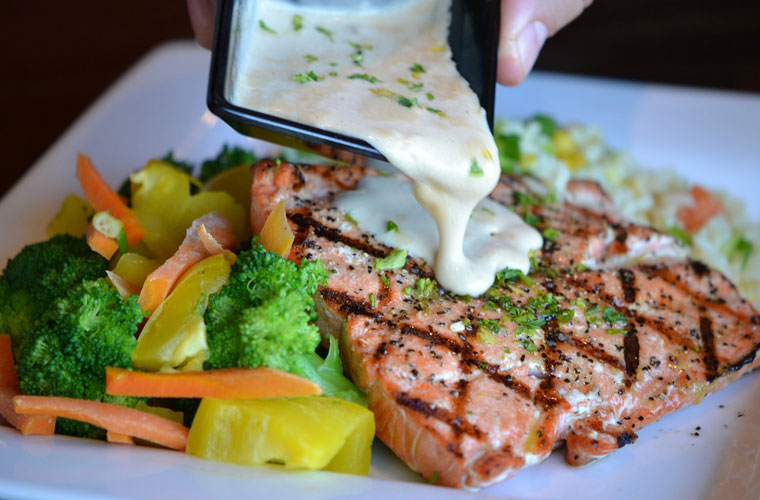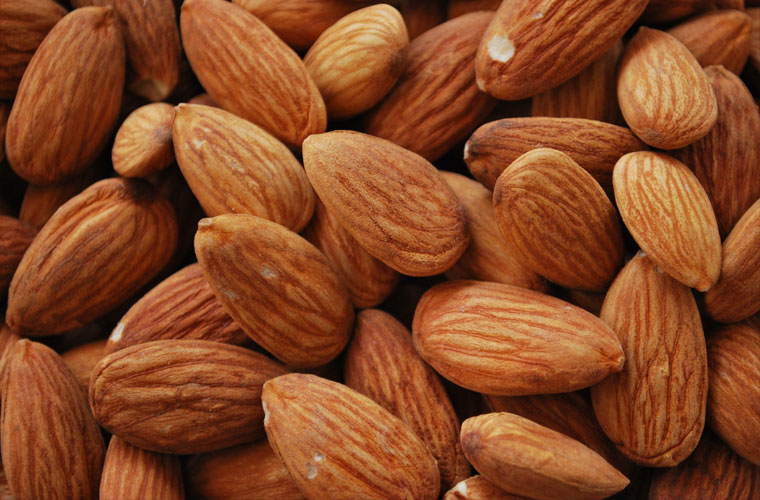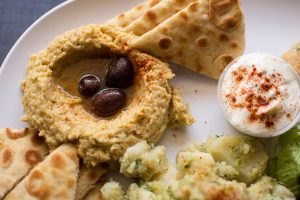Experts claim that the food we eat greatly affects our health and our mood, which means that conditions like depression can actually be alleviated by proper food choices. Here are some recommendations that will improve your mood and keep the body in an enviable form.

Photo credit: Pixabay
Salmon
Several studies have shown that men and women have a lower risk of depression if they eat fish several times a week, especially oily fish such as salmon, tuna, trout, etc. Salmon is rich in omega-3 fatty acids which fight depression and help reduce anxiety.
It is especially effective in combating postpartum depression. If you are vegetarian and you do not eat meat, sources of DHA and EPA omega-3 fatty acids can also be found in nuts and flax seeds.
Reduce the intake of corn, sunflower oil and processed foods such as chips and cakes, because they have large amounts of omega-6 fatty acids that can reverse the effects of omega-3 acids. Keep in mind that if you decide to include fish in your diet, make sure you get it organic and as natural as possible.
Fruit and vegetables
Fruit and vegetables are full of nutrients and antioxidant called phytochemicals which directly contribute to your health and quality of life. Pineapple is very important fruit and doctors emphasize its beneficial effects on the central nervous system.
On the other hand, bananas bring their own set of benefits and they are known to stimulate the production of serotonin. When it comes to vegetables, legumes (beans, peas, and lentils) have a positive effect on proper brain function.
Green leafy vegetables are the main source of folic acid, whose deficiency causes depression, poor memory, and serotonin drop in the brain, resulting in a bad mood. Simply put, the more fruit and vegetables you eat, you will be healthier and happier; it is as simple as that.
Dark Chocolate
Chocolate is a medicine, an aphrodisiac and a way to a good mood. Believe it or not, dark chocolate encourages the secretion of the hormone of happiness. When you feel the need to eat something sweet, it’s a sign that you have decreased secretion of serotonin and endorphins – the hormone of happiness.
Feeling good while eating chocolate is a direct result of endorphins, and the activity of serotonin, which prolongs this feeling. Chocolate also contains phenylethylamine, which functions as a neurotransmitter in the human brain, just like serotonin and endorphin.
They arise in the nerve cell and act immediately, transmitting information from one cell to the other. Keep in mind that reduced serotonin production in the nervous system causes bad mood and depression.

Photo credit: Google commons
Almonds and other nuts
Nuts are rich in a compound called tyrosine, one of the most important building blocks in the process of producing dopamine and other neurotransmitters associated with good mood. You will not only improve your mood, but you will also preserve your cardiovascular health thanks to the richness of fibers and monounsaturated and polyunsaturated fatty acids.
Besides almonds, other nuts such as peanuts contain thiamine, which is known as “vitamin of optimism”. It is also important to mention that nuts contain a high dose of magnesium which acts as an antidepressant as well.
Sunflower seeds also contain microelements that regulate the functioning of the nervous system, and they can also help you fight off the depression. When it is all said and done, it is clear that nuts can help you preserve your physical and psychological health, and you should include them in your diet, if you didn’t already.
Vitamin D
Recent research shows that the lack of vitamin D in the body directly affects your mood, and the risks of depression are far greater. One way to compensate for the lack of vitamin D is to eat foods that contain it.
However, this is often not enough, so it is the best to combine proper nutrition, sunbathing and the use of supplements, but with mandatory consultation with the doctor.
The foods that contain this vitamin are fatty fish (salmon, mackerel, sardines …), yolks, butter, yogurt and some cheeses, mushrooms, avocados, milk, yeast, seaweeds and others. But, as you probably already know, the best way to supply your body with vitamin D is to get out on the sun.



